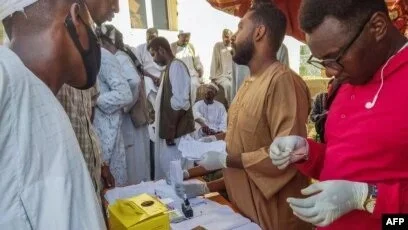Sudan’s health crisis has deepened as Health Minister Haitham Mohamed Ibrahim revealed on September 23, 2025, that tens of thousands are suffering from dengue fever, cholera, and malaria. The ongoing two-year conflict between the Sudanese army and the Rapid Support Forces has left hospitals crippled and health services collapsing.
Dengue Cases Rising in Khartoum
More than 2,000 new dengue infections were confirmed in Khartoum within a week. However, Ibrahim warned that actual figures are likely much higher, since many patients with mild symptoms avoid hospitals.
Doctors at Omdurman Hospital are treating patients with basic paracetamol drips. Medical staff stressed that while dengue is often mild, it can be fatal if contracted a second time.
War and Weather Fuel Disease Spread
Relentless rains have created stagnant pools where mosquitoes breed rapidly. With electricity and water supplies disrupted by war, families store water in containers at home—further increasing mosquito growth.
“Garbage keeps piling up, and mosquitoes multiply,” said Salaheldin Altayib, a 65-year-old Omdurman trader who fell ill alongside two of his relatives.
Health Systems in Collapse
Minister Ibrahim said the conflict has halted mosquito control programs, such as insecticide spraying, which previously reduced outbreaks. “The war is destroying health services, water networks, and the environment,” he explained, adding that mosquito numbers have exploded.
Cholera and Financial Strain
Cholera outbreaks have also surged, with 12,739 cases recorded in Darfur in just four months—mostly in Tawila, where families continue fleeing violence from al-Fashir.
Although vaccines have slowed the spread in Khartoum, other regions remain vulnerable. Ibrahim estimates $39 million is urgently required to combat the crisis. But with global aid declining, funding shortfalls threaten an effective response.
A Call for Immediate Global Support
Sudan’s war has already displaced millions, and now infectious diseases threaten to worsen the humanitarian disaster. Experts stress that swift international assistance is needed to fight dengue, cholera, and malaria, while restoring shattered health systems.






